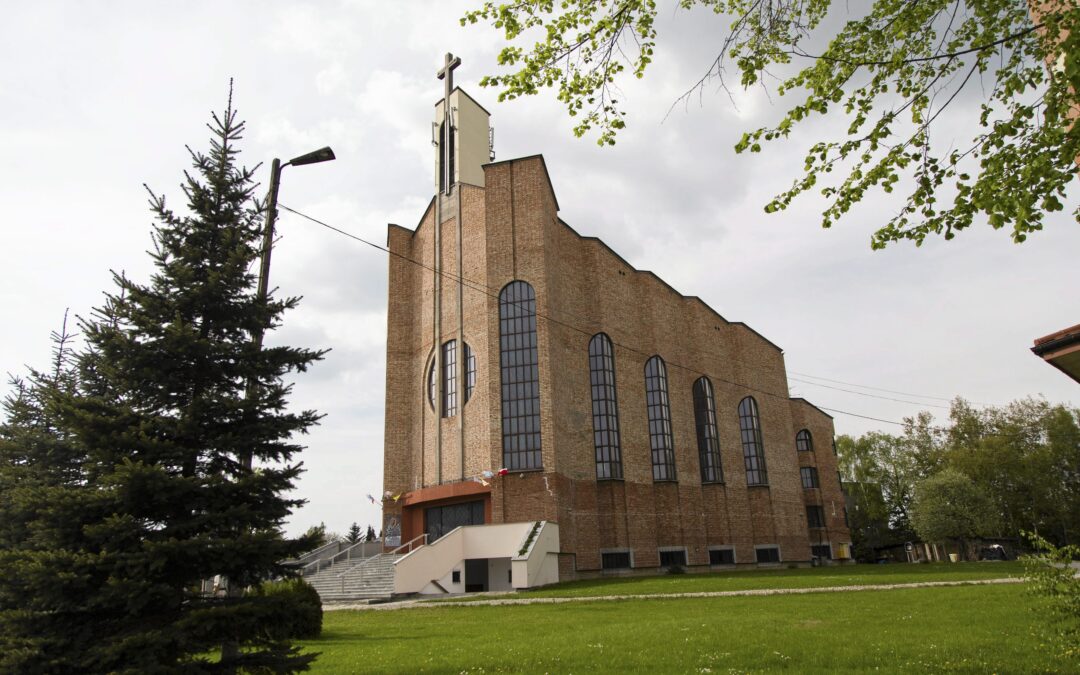A church in the city of Tarnów is built on land unlawfully taken from its rightful Jewish owner, a Holocaust survivor, Poland’s Supreme Court has effectively confirmed.
The judgement was issued after the Polish justice minister himself intervened, launching an extraordinary appeal to overturn a previous ruling against the church. The current owner of the land – the daughter of the Holocaust survivor – is still fighting a legal battle to have the plot returned to her or receive equivalent compensation.
Before the Second World War, the land in question belonged to the Goldmans, one of the wealthiest families in Tarnów, reports Gazeta Wyborcza. Most of the family perished in the Holocaust. Only one member, Blanka Goldman, survived, thanks to the help of a Catholic family, the Poetschkes, who hid her from the German occupiers.
After the war, Goldman emigrated to Australia, but before doing so granted power of attorney over her property to one of the Poetschkes, Hubert. He later transferred it to his son, Jerzy.
In 1986, the local diocese enquired about buying the land. That same year, on the advice of parish lawyers, Jerzy filed an application to take control of the “abandoned” land through adverse possession, reported the Guardian.
In his filing, Jerzy Poetschke falsely claimed not to know the whereabouts of the rightful owners. The court accepted his claim and granted him the land. He then donated some to the church and sold the rest. He never informed Goldman’s family, even when her husband visited Tarnów in the 1990s.
The Catholic diocese of Tarnów 'effectively stole' land from a Holocaust survivor and built a church on it. The family won a legal battle to get it back, but that could now be overturned after the justice minister used new powers to challenge the decision https://t.co/AfpoYVu6xb
— Notes from Poland 🇵🇱 (@notesfrompoland) September 1, 2019
Only in 2010 did Blanka Goldman’s daughter, Ann Drillich, discover that her mother’s land had been misappropriated. She launched a legal battle to get it back, while the local parish fought to retain its control.
Six years ago, the matter appeared to have been settled, after a final court ruling confirmed Drillich as the rightful owner. That changed last year, however, when Ziobro – in his other role as prosecutor general – intervened.
Ziobro took advantage of a power introduced by his own government that allowed him to launch an extraordinary appeal against historical judgements. The case would be considered by the Supreme Court’s chamber of extraordinary control, an institution set up as part of the government’s contested judicial overhaul.
In a filing, Ziobro’s deputy, Robert Hernand, argued that Drillich had launched her legal action too late to overturn the church’s acquisition of the plot in 1986, reports Gazeta Wyborcza.
A Catholic church was built on land taken from a victim of the Holocaust in Poland. Now the Polish government has intervened – on behalf of the churchhttps://t.co/mursxIAPVE
— Haaretz.com (@haaretzcom) September 8, 2019
Now, however, the Supreme Court has rejected the appeal. The verdict was delivered in a closed session and the justification has not yet been published. But its decision means that Drillich’s earlier court victory remains valid.
Drillich’s battle, however, is still not over. Proceedings are still pending before the appeals court in Kraków over how the parish in Tarnów should compensate her.
It remains to be decided whether it will physically return the property to her or pay the financial equivalent. Drillich has also demanded around 2.5 million zloty as compensation for use of the land.
Her lawyer, Tomasz Ludwik Krawczyk, says that representatives of Tarnów curia have refused to meet to discuss the issue. He also alleged that, throughout the process, the church has acted “in bad faith” and used “a whole range of tricks to delay proceedings”, reports Gazeta Wyborcza.
A legal representative of the parish in Tarnów, Anna Radyńska, told the newspaper that they would not comment on the Supreme Court ruling until the justification was published.

Daniel Tilles is editor-in-chief of Notes from Poland. He has written on Polish affairs for a wide range of publications, including Foreign Policy, POLITICO Europe, EUobserver and Dziennik Gazeta Prawna.




















